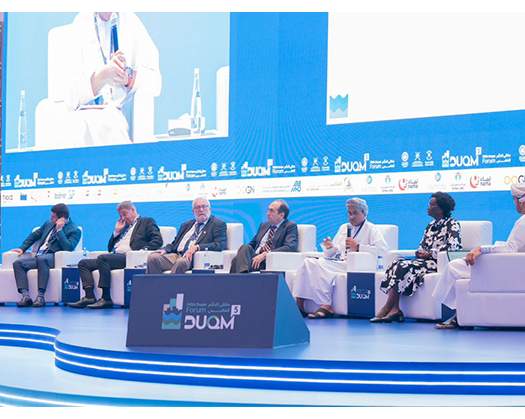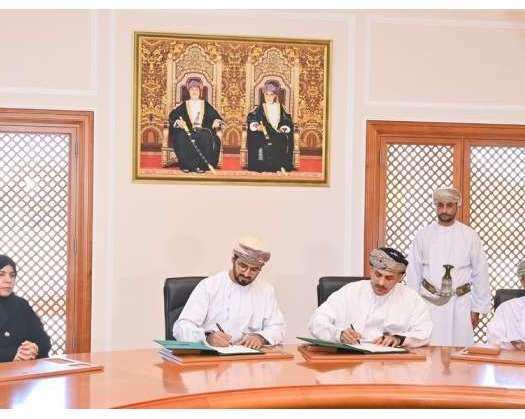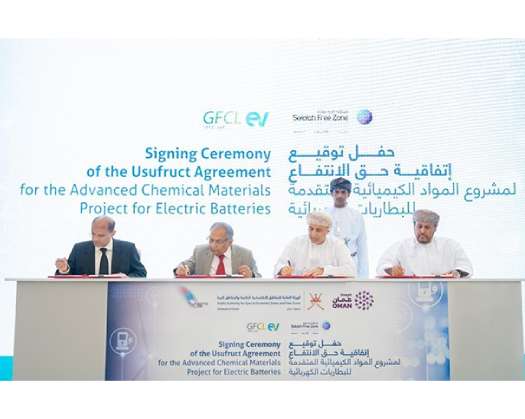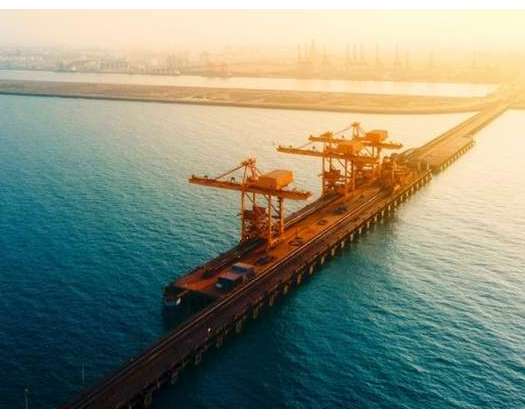Muscat: The Public Authority for Special Economic Zones and Free Zones (OPAZ) unveiled a pivotal document during the third session of the 5th Duqm Forum, which took place this morning (October 20, 2024) at the Oman Convention and Exhibition Centre. This participation marks a significant step in the Authority's endeavors to foster investments within the blue economy, a cornerstone of sustainable economic development in the Sultanate of Oman.
The document, delivered by Saleh bin Hamoud Al-Hsani, Advisor to the Chairman and the official spokesperson of OPAZ, offered an in-depth analysis of the investment policies and strategies implemented by OPAZ to cultivate the blue economy and bolster its contribution to the national economy.
The document highlighted a variety of investment projects localized within the Special Economic Zone at Duqm SEZAD, including the Al Wusta Fisheries project and Simak, a private enterprise specializing in canning, recognized as one of the largest fish canning ventures in the Middle East. Additionally, it covered the fish farming initiative, shedding light on the encouragement of sustainable investments in blue economy-related sectors such as marine aquaculture, renewable energy, and water resource management. OPAZ underscored the provision of incentives aimed at attracting further investments in these areas, thereby enhancing the sustainability of natural resources and creating new avenues for economic growth.
Furthermore, the document addressed the promotion of innovation through the establishment of research and development centers. These centers are designed to support marine technology, develop sustainable fishing techniques, and improve quality control systems, all of which contribute to the increased efficiency and sustainability of utilizing marine resources.
The document also delved into the enhancement of marine and logistical infrastructure, with OPAZ focusing on the upgrade of ports and logistical facilities to facilitate transportation and trade activities associated with the blue economy. This upgrade is deemed a crucial step in attracting investments and improving operational efficiency within this essential sector.
Additionally, the document reviewed OPAZ's initiatives in developing environmental policies, which include the establishment of stringent environmental standards aimed at preserving marine biodiversity and reducing pollution. This ensures that economic activities related to the blue economy remain sustainable while safeguarding the marine environment.
Moreover, the document outlined OPAZ's efforts in providing training and awareness initiatives, organizing training programs for local communities to emphasize the significance of the blue economy and educate them on sustainable fishing practices. These initiatives aim to enhance awareness and build local capacities within this sector.
The document also explored OPAZ's role in the improvement of legal policies governing marine activities, highlighting the importance of updating legal frameworks to ensure the sustainability of economic activities related to the blue economy. This contributes to the long-term sustainable development of the nation.
In conclusion, the document reviewed the most significant achievements in the development of special economic zones and free zones, which have emerged as major investment hubs, thanks to tax incentives and a flexible legal framework. These zones have also played a pivotal role in economic diversification and the emergence of new sectors, including renewable energy, green hydrogen, technology, and innovation.












